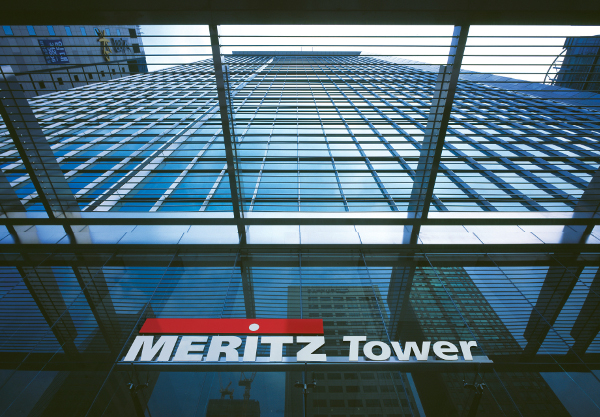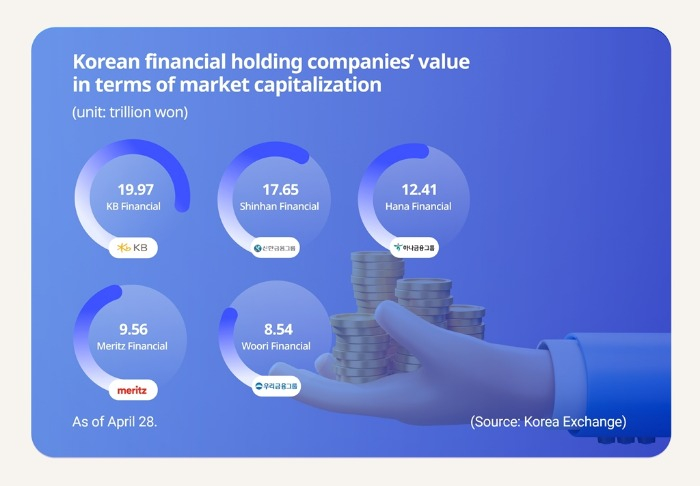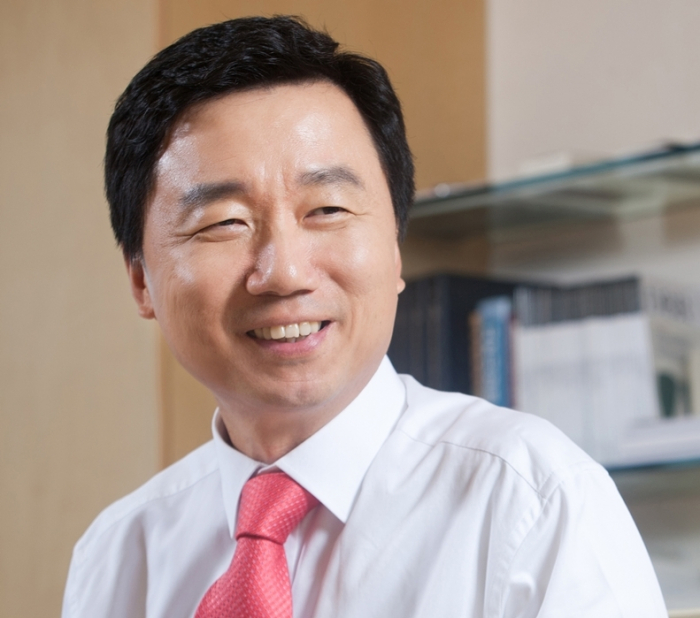Banking & Finance
Meritz emerges fast to take on South KoreaŌĆÖs big financial companies
Its revenue-generating capability and enhanced shareholder-friendly dividend policy are appealing to investors
By May 02, 2023 (Gmt+09:00)
3
Min read
Most Read
S.Korea's LS Materials set to boost earnings ahead of IPO process


Hankook Tire buys $1 bn Hanon Systems stake from Hahn & Co.


Aman, Rosewood, Banyan, IHG rush to open luxury hotels in Seoul


Samsung Heavy Industries succeeds autonomous vessel navigation


Biden exempts graphite from EV mineral sourcing rule in win for Korea



Back in the early 2000s, Meritz was an obscure, lesser-known insurance-related company in South KoreaŌĆÖs financial arena.
Part of Hanjin Group, best known for its airline affiliate Korean Air Lines Co., Meritz Fire & Marine Insurance Co. was a longstanding laggard, ranking fifth in the insurance industry with 2.7 trillion won ($2 billion) in assets and market capitalization of a mere 170 billion won in 2005.
Meritz Securities Co., called Hanjin Investment & Securities back then, was a so-and-so brokerage with 631.5 billion won in assets and 150 billion won in market cap.
That year, Cho Jung-ho, the fourth and youngest son of Hanjin founder Cho Choong-hoon, inherited the groupŌĆÖs financial arm and regrouped it into Meritz Financial Group Inc., which then started to gradually enhance its presence in KoreaŌĆÖs financial sector.
Last month, Meritz Financial relisted its shares on the Korea Exchange after merging its two flagship units ŌĆō Meritz Securities and Meritz Fire & Marine.

On April 25, its first trading day since the merger, Meritz FinancialŌĆÖs market cap reached 9.5 trillion won, becoming KoreaŌĆÖs fourth most valuable financial holding company behind KB, Shinhan and Hana.
The usual fourth-ranking financial holding firm, Woori, slid to fifth with 8.68 trillion won in market value.
VALUED HIGHLY BY MARKET PLAYERS
With groupwide assets of 480 trillion won, a fifth of its crosstown rivals, Meritz Financial Group is valued highly by market participants due to its shareholder-friendly policy, analysts said.
Last year, Meritz FinancialŌĆÖs net profit was 1.64 trillion won, half of Woori FinancialŌĆÖs 3.32 trillion won.
MeritzŌĆÖs return on assets (ROA), however, was twice that of Woori and its return on equity (ROE) was three times higher.

Its brokerage affiliate, Meritz Securities, posted a record 2022 operating profit of 1.09 trillion won, higher than industry leader Mirae Asset Securities Co.
ŌĆ£Following the integration of our two key affiliates, the insurance and brokerage companies, our holding company can seek various investment opportunities more effectively,ŌĆØ said Meritz Financial Group Chief Executive and Vice Chairman Kim Yong-beom.
Analysts said MeritzŌĆÖs capability to stably generate revenue and shareholder-friendly dividend policy are appealing to investors.
RETURN HALF OF NET PROFIT VIA DIVIDENDS OR SHARE BUYBACK
Earlier this year, the company said it will return half its full-year net profit to shareholders via dividends or share buyback plans ŌĆō a significant departure from its past shareholder policy.
Dalton Investments LLC, a US-based value-focused investment management firm with expertise in Asia, in January issued a rare public letter, praising MeritzŌĆÖs new shareholder policy.

The groupŌĆÖs leader and Chairman Cho Jung-ho has also publicly announced that he has no intention of passing the company down to his children.
Following the relisting of Meritz Financial Group after the merger of its two major affiliates, ChoŌĆÖs stake in the group has declined to 47% from 75.81%.
Meritz Financial is also playing the role of a market stabilizer in Korea.
Earlier this year, it provided 1.5 trillion won in loans to Lotte Engineering & Construction Co., which was reeling under a liquidity shortage caused by the collapse of Legoland.
Lotte had been struggling to secure money after the default of municipal government-guaranteed debt worth 205 billion won for Legoland Korea in Gangwon Province hammered KoreaŌĆÖs short-term money and corporate bond market.
Lotte Group initially offered 600 billion won in rescue funds to its construction unit at the time.
Write to Ho-Gi Lee at hglee@hankyung.com
In-Soo Nam edited this article.
More to Read
-
 EarningsMeritz Securities poised to become KoreaŌĆÖs No. 1 for first time
EarningsMeritz Securities poised to become KoreaŌĆÖs No. 1 for first timeFeb 03, 2023 (Gmt+09:00)
2 Min read -
 Capital raisingLotte E&C, Meritz Securities conclude $1.2 billion investment deal
Capital raisingLotte E&C, Meritz Securities conclude $1.2 billion investment dealJan 10, 2023 (Gmt+09:00)
1 Min read -
 Mergers & AcquisitionsKorean activist fund KCGI buys Meritz Asset Management
Mergers & AcquisitionsKorean activist fund KCGI buys Meritz Asset ManagementJan 09, 2023 (Gmt+09:00)
1 Min read -
 Mergers & AcquisitionsKorea's Meritz Group likely to sell off its asset management arm
Mergers & AcquisitionsKorea's Meritz Group likely to sell off its asset management armNov 01, 2022 (Gmt+09:00)
1 Min read
Comment 0
LOG IN


